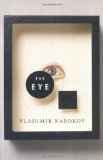Book Review: "Sarah's Key" by Tatiana de Rosnay
May 3, 2008
I received another Early Reviewer book this month from LibraryThing. The paperback edition of Sarah’s Key will come out this fall. It is currently available in hardback from Amazon and other sources.
–
The story is part mass market thriller, part didactic history lesson, and part novel, a well-crafted but poorly-written page-turner more akin to an action movie than a work of literary subtlety.
It was about a third of the way into “Sarah’s Key” that I started wondering if it had been originally written in English (t was). I scoured the title pages for translator credits; I surfed the Web for data. The author, Tatiana de Rosnay, is French, so it would be feasible that that language is where this began. I did this research because I was hoping that there was a reason that the language was as dreadful as it was. I wanted to be able to blame someone other than the author for the stock, jarring phrases like “eyes white with fear” and “speechless with terror.” At one point, speaking of a matter of life and death amongst the characters, de Rosnay has the young girl worry franctically if, by locking her very young brother in a hidden cabinet when the police come to round up her family, she has “let him down.”
Let him down? “I let him down” is a reasonable thing to say when you miss your kid get a home run in his tee-ball game because you’re working late at the office. It seems a wildly inappropriate (not to mention anachronistic) way to describe a child’s potential death. Perhaps this was on purpose. But it smacked of a carelessness with words that I found difficult to ignore.
The effort the book makes at bringing an obfuscated, shameful piece of history to the fore is noble. de Rosnay is right, most people have not heard of this tragedy. But what’s missing, except for brief mention, is the broader context of the French Occupation and the Vichy regime. France’s political paroxysms during WWII are complex, and I’m not going to pretend I understand them (yet). I would have appreciated a lesson in how the Vel d’Hiv’ tragedy plugged in to what was going on in a broader sense. de Rosnay condemns the French policemen for carrying out the grim task, and though she does have a character that breaks out his jackboot role, the rest of the force is portrayed as thugs blindly following orders. One has to question what the motivation was, what was really driving it.
What I can credit the work with is its inventiveness of plot. I hesitate to pigeonhole something about the Holocaust as a “beach read” but it has that tempo, a Dan Brown-ish Byzantine intrigue, that seems to suggest the genre. At an early point in the story, I paused and made specific predictions about the resolution of the story arcs. I was wrong about nearly all of them, which was redeeming.
During my brief Web research about the book, I came across the publisher’s page, trumpeting that movie rights have been sold. Good, I thought. Perfect. Because this is an isolated case in which I think the movie might be better than the book.
Recently Reviewed
Get the Books
Read my Reviews
Related Posts
- Book Review: "In the Woods" by Tana French
April 21, 2008 - Book Review: “Undaunted Courage” by Stephen E. Ambrose
March 20, 2011 - Book Review: "The 19th Wife" by David Ebershoff
June 2, 2008 - Book Review: “Blood Harvest” by S.J. Bolton
November 8, 2010 - They Continue Making Amazing Scary Books into Movies
April 7, 2008

 )
)

